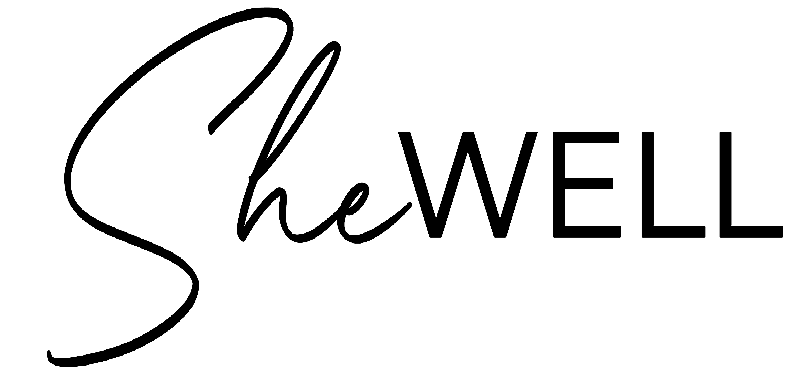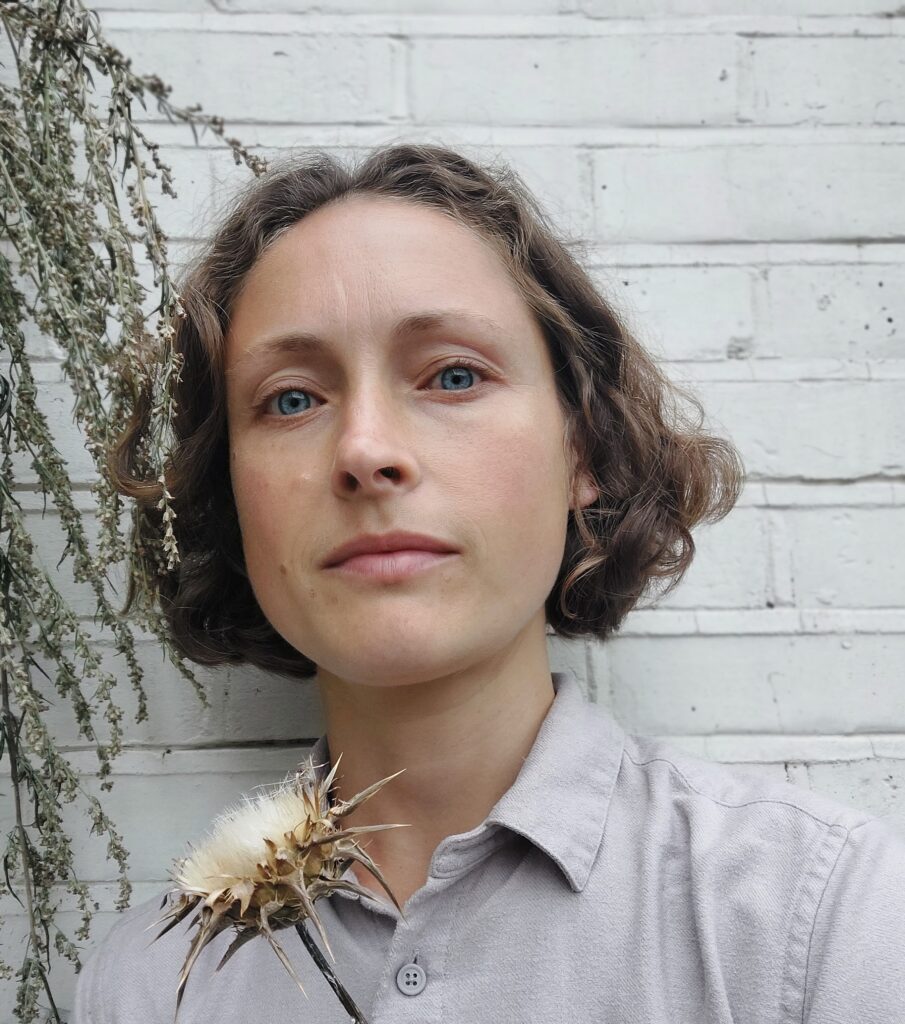Katie is a family herbalist and plant doula supporting women to feel revitalised and resourced in their mothering journeys through hands-on skills that root wellbeing in the earth’s medicine. She lives in London with her partner and five daughters, home educates the three youngest, and is currently studying midwifery.
What led you to holistic health? Was there a moment on your personal journey that you struggled with and found that your current area of expertise could help you and others?
I grew up immersed in stories of illness and medical tragedy – my mum was a paediatric nurse and my dad was a scriptwriter for hospital dramas – so I came to understand health from quite a serious angle pretty early on in my life. Later, during my own crisis. whilst navigating months in an inpatient eating disorder unit as a 14 year old, I had my eyes opened to a broader spectrum of care, and was lucky enough to receive therapies that completely turned my world around and ignited my passion for helping others within a holistic framework. The desire to support other women on their health journeys was further catalysed when I became a mother, trained in herbal medicine, doula and postpartum care, and fully realised my work as a sanctuary, whose tools could help women feel nourished and revitalised as they conceived, gestated, and raised their families in coherence with their unique needs.
How can your specialist area support females preparing for motherhood or postpartum?
Herbal medicine seeks to reunite our health, hands, and our hearts with the lessons of the earth. Conscious conception, pregnancy, birthing, and caring for a newborn are rich portals for discovering your intuition and your inner wisdom. The medicine plants support this because they bring us closer to our own “blueprints” – i.e. they work with our bodies’ innate pathways to bring them back to optimal function, as per the design. As a collective human race, most of us have moved away from traditional ways of preventative health, so that many women enter the postpartum in a state of deficiency. Motherhood also tasks us with some of the most energy-hungry years of our lives, where we need to be resourced and resilient. Rooting your healthcare in nature during your mothering years brings you into connection with foraging your own medicine, seasonal living, ancestral skills of preserving and processing remedies, sustainable growing practices, and tending to your children with bespoke blends that suit their strengths and needs.
All of that is to say – herbs help women reach their most intuitive, radiant, thriving versions of themselves.
How do your clients integrate your practices alongside conventional medical treatments? How do the two co-exist (support each other).
I teach my clients the essential foundations of how to prevent, manage, and alleviate their unique family pattern of medical conditions or individual pathologies that they’re experiencing. We seek to understand the origins and explore many different ways of improving wellbeing, whether through topical medicine, like castor oil packs or herbal baths, or internal medicine, like tinctures, teas, powders, vinegars, or syrups. The women I work with are looking to integrate natural medicine into their lives for transformation. We expect results within the first weeks, and look for a long-term sustainable impact. If a client needs to receive conventional medical treatments or take pharmaceuticals, but wants to support with holistic methods as well, we can always find specific herbs that don’t interfere with other approaches.
If you were speaking to your younger self what advice would you give her? (is there anything you would do differently or wish you had the access to with the knowledge you have now).
Whilst I don’t have any regrets, from the vantage point of where I am now as a mother of five daughters, I would prioritise the rhythm of rest more, especially in the postpartum phase. What I know now is that the ways in which mothers can bring rest into the postpartum will protect them in their peri-menopausal years and set them up for robust health post-menopause. I would also love to have known more about scar tissue and how to prevent adhesions in the pelvic bowl after surgeries like caesarean section.
Do you have a personal mantra or favourite quote that you live by / inspires you?
So many, and it’s always evolving! At the moment I love this, by Rachelle Seliga (midwife and founder of Innate Postpartum Care training) because it speaks to a synergy between the health of humans and the health of the natural world – in my mind, we have to consider the negative impact that conventional medicine has on precious resources like water, air, and soil, in order to re-orient to ways of being and healing that are harmonious with the ecosystem that considers all species as parts of a whole.
“We are not protecting Nature, We are Nature, protecting itself.”
Have you had any mentoring on your journey or someone that has guided you that you look up to?
Yes, I’m so grateful to have received guidance from and been in the company of elder herbalists and health practitioners. Rachelle Seliga (quoted above) is one of those precious people.
What do you think is the biggest challenge your female clients face when it comes to their general health and being a mother?
I think many women feel under supported. Motherhood is such a rite of passage, with specific themes that need tending to in order to maintain health. Perhaps family live too far away to provide help, or are coming from completely different ways of approaching motherhood, or there’s an overwhelm from the sheer volume of information circulating about health and mothering. Stress can show up in the body as headaches, irregular menstrual cycles, anxiety, skin issues, insomnia, thyroid problems…so many things.
What conversation do you feel we are not having as women and should be having when it comes to motherhood and female health? Would you like to come on a podcast and discuss this with us?
Well, this is a tricky one – because there are many conversations and efforts going on that are moving the needle for mothers’ and female health in general, so I want to acknowledge the work in progress and the achievements already gained in this realm.
I do see mothers as epicentres of change. The energy that they invest in exploring the roots and trajectory of their health, and their children’s health, has the potential to quite literally shape the future of our planet. This is why I offer kids’ herbal medicine workshops to my community, and why I’m raising my children to understand the names and properties of the native wild medicine growing all around them.
I think the conventional medical and education systems rob young people and females especially, of the framework, skills, and tools that they need to understand preventative and holistic wellbeing, and in general, prevent the creation of autonomous healthcare from the perspective of individual needs.
All the women and families I serve learn to care for themselves with nature’s medicine in light of their iridology prints, their family history, their life story, and the unique ways in which they would like to remember and revitalise their innate power.
As the mother of five daughters what has your journey of becoming a mother been like in terms of the physical, psychological and emotional changes you went through? How has herbal medicine supported you?
I fell pregnant with my first daughter just shy of 23 yrs old, a few years’ deep into reading books about nutrition and maternal health, but before I had any formal training in herbal medicine. I was blessed to have a healthy and straight-forward pregnancy, rested a lot, ate well, journaled, felt excited about birthing. Probably the most challenging aspect of pregnancy, as a former anorexic, was my changing body shape and I really had to learn to trust the process during those months. Trust and surrender were big themes for me. I gave birth naturally without pain relief in the hospital after being in active labour for about 6 hours – not bad for a first timer! My positive experience really shaped my early mothering, and is perhaps one of the reasons why I went on to have so many more babies!
Daughters number two and three were born at home, which I loved. Each labour for me was quite different, and taught me something about myself and the baby that was coming. Those two were in contrast to each other – my second birth was painless, easy, ecstatic, whereas my third took much longer than I expected, and showed me how psychological the process can be.
I began to study herbal medicine when my third daughter was little after meeting an amazing naturopath who supported me in exploring natural healing for eczema. I’d already steered away from conventional medicine for my family for a number of years and began to incorporate herbal teas for simple things that came up, like fevers, sleep problems, and for protective Winter immunity. I felt so strengthened by the plants, and so uplifted by spending time outdoors getting to know what was growing near us. I loved that my children were strong and resilient, and that we could support their natural growth and development with mineral rich herbs and soothing nerve-nourishing infusions.
Becoming a mother to my fourth and fifth daughters was different again. After an emergency caesarean with a critically ill baby, and a pregnancy and birth during the pandemic, I looked to herbal medicine more than ever. Foraging, crafting remedies, teaching plant workshops at festivals and across the country, hosting online and face to face courses for women, making plans for a herbal sanctuary in the city – this is now the lifeblood that keeps me feeling grounded, connected, and inspired, and excited to birth baby no. #6 next Summer!
https://thethistleist.com/
Instagram @thethistleist

